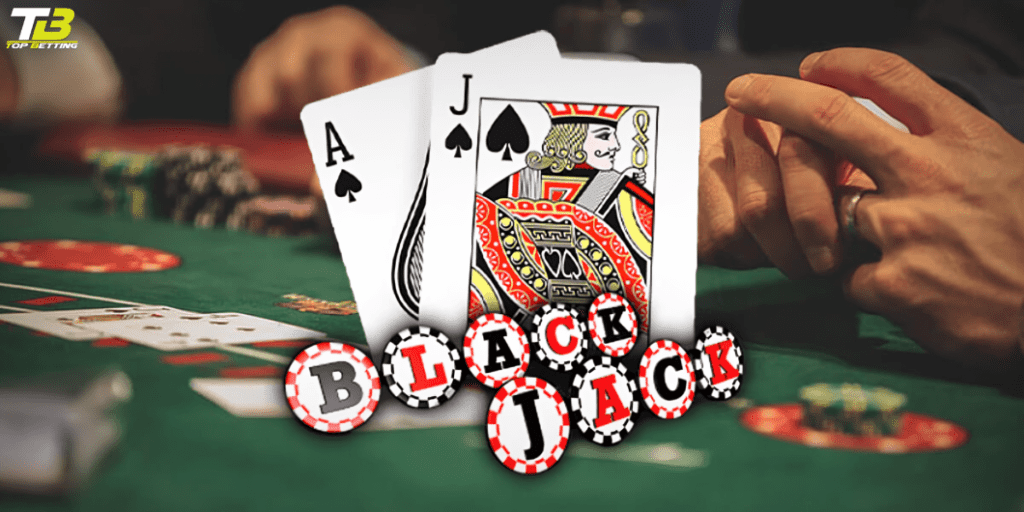
Strategies for Blackjack Players in the Casino
Introduction
Whether you’re a seasoned pro or a novice at the blackjack table, having a solid strategy is key to maximizing your chances of success. In this article, we will explore effective strategies that blackjack players can employ in the casino to increase their odds of winning.
One popular approach is card counting. While not illegal, it is frowned upon by casinos games, so discretion is advised. By keeping track of which cards have been dealt, players can gain a statistical advantage and adjust their betting accordingly.
Another strategy is knowing when to hit, stand, double down, or split. By understanding the basic blackjack strategy, players can make informed decisions based on the cards they have been dealt and the dealer’s upcard.
Additionally, managing your bankroll is essential. Setting a budget, sticking to it, and avoiding emotional betting are crucial to long-term success in blackjack.
In this article, we will delve into these strategies in more detail, providing tips and insights to help you sharpen your blackjack skills and increase your chances of winning big in the casino. So, let’s dive in and become a blackjack master!
Basic rules and gameplay of blackjack
Blackjack is a popular card game played in casinos worldwide. The objective is to have a hand with a total value closer to 21 than the dealer’s hand, without exceeding 21. The game begins with the player and the dealer each receiving two cards. The player’s cards are dealt face-up, while one of the dealer’s cards is dealt face-up and the other face-down.
To play, the player must make decisions on whether to hit (receive another card), stand (keep the current hand), double down (double the original bet and receive one more card), or split (if the player’s first two cards have the same value, they can be split into two separate hands). The player can continue to hit until they decide to stand or exceed 21, resulting in a bust.
It is important to note that the dealer must follow a strict set of rules when deciding to hit or stand. Typically, the dealer will hit until they reach a certain hand value, usually 17 or higher.
Understanding the basic rules and gameplay of blackjack is crucial before implementing any strategies. Now, let’s explore the house edge in blackjack to better understand the game’s odds.
Understanding the house edge in blackjack
The house edge is a statistical advantage that the casino has over the players in any casino game, including blackjack. It is represented as a percentage and indicates the average amount of each bet that the casino will mathematically win over the long run.
In blackjack, the house edge can vary depending on the specific rules of the game and the player’s strategy. Generally, the house edge ranges from 0.5% to 2%. This means that, on average, the casino will win 0.5% to 2% of each bet made by players.
To minimize the house edge and increase your chances of winning, it is important to employ effective strategies while playing blackjack. Let’s explore some beginner-friendly strategies that can help improve your blackjack game.
Blackjack strategies for beginners
For beginners, it is recommended to start with a basic blackjack strategy. This strategy provides a set of rules on when to hit, stand, double down, or split based on the player’s hand and the dealer’s upcard.
One of the fundamental rules of basic blackjack strategy is to always assume that the dealer’s facedown card is a 10. This helps in making informed decisions about hitting or standing.
Another important rule is to avoid taking unnecessary risks. For example, if the dealer’s upcard is a 6 and the player’s hand value is 12, it is recommended to stand rather than risk busting by hitting.
Doubling down is another strategy that can be beneficial if used wisely. Doubling down allows the player to double their original bet and receive one more card. It is generally recommended to double down when the player’s hand value is 10 or 11 and the dealer’s upcard is 9 or lower.
Splitting pairs is a strategy that can be used when the player’s first two cards have the same value. By splitting the pair, the player creates two separate hands and places an additional bet equal to the original bet. It is generally recommended to split a pair of 8s or a pair of Aces.
By following a basic blackjack strategy, beginners can make informed decisions and improve their chances of winning. However, for experienced players looking for more advanced strategies, let’s explore some techniques like card counting.
Advanced blackjack strategies for experienced players
Card counting is a technique used by experienced players to gain a statistical advantage over the casino. By keeping track of the cards that have been dealt, players can estimate the composition of the remaining deck and adjust their betting accordingly.
There are different card counting systems, but the most popular one is the Hi-Lo system. In this system, each card is assigned a value of +1, -1, or 0. Low cards (2-6) are assigned a value of +1, high cards (10-Ace) are assigned a value of -1, and 7, 8, and 9 are assigned a value of 0.
As the game progresses, the player keeps a running count by adding or subtracting the assigned values of the cards that have been dealt. A positive running count indicates that more low cards have been played, which is favorable for the player. Conversely, a negative running count indicates that more high cards have been played, which is favorable for the dealer.
By knowing the composition of the remaining deck, players can adjust their bets to maximize their chances of winning. However, it is important to note that card counting is not easy and requires practice. Casinos also employ countermeasures to detect and prevent card counting, so discretion is advised.
Now that we have explored advanced strategies like card counting, let’s shift our focus to another crucial aspect of blackjack – managing your bankroll.
Tips for managing your bankroll in blackjack

Bankroll management is essential for long-term success in blackjack. Setting a budget and sticking to it is crucial to avoid losing more money than you can afford. Here are some tips for managing your bankroll effectively:
Set a budget: Determine the maximum amount of money you are willing to spend on blackjack and stick to it. Avoid chasing losses by increasing your bets when on a losing streak.
Divide your bankroll: Divide your total bankroll into smaller units for each session. This helps in avoiding overspending and allows you to play for a longer duration.
Set win and loss limits: Before starting a session, set a win goal and a loss limit. If you reach your win goal or hit your loss limit, stop playing. This prevents you from getting carried away and losing more money.
Avoid emotional betting: It is important to stay calm and rational while playing blackjack. Avoid making impulsive decisions or increasing your bets out of frustration or excitement. Stick to your strategy and make logical decisions based on the cards and the dealer’s upcard.
By following these tips, you can effectively manage your bankroll and increase your chances of long-term success in blackjack. However, it is also important to be aware of the etiquette and behavior expected at the blackjack table.
Etiquette and behavior at the blackjack table
When playing blackjack in a casino, it is important to adhere to certain etiquette and behavior standards. Here are some guidelines to follow:
Know the rules: Familiarize yourself with the specific rules of the blackjack table you are playing at. Different casinos may have slightly different rules regarding splitting, doubling down, and other aspects of gameplay.
Respect the dealer and other players: Treat the dealer and fellow players with respect and courtesy. Avoid making derogatory or offensive remarks, and refrain from criticizing others’ gameplay decisions.
Avoid touching the cards: In most cases, players are not allowed to touch the cards at the blackjack table. Use hand signals to communicate your decisions instead of touching the cards.
Tip the dealer: It is customary to tip the dealer if you are winning. Tipping is not mandatory but is considered a sign of appreciation for the dealer’s service.
By following these etiquette guidelines, you can create a pleasant playing environment and ensure a positive experience for yourself and others at the blackjack table. Now, let’s discuss some common mistakes that players should avoid.
Common mistakes to avoid in blackjack
Even experienced players can make mistakes while playing blackjack. Here are some common mistakes to avoid:
Ignoring basic strategy: Failing to follow a basic blackjack strategy can significantly reduce your chances of winning. Make sure to familiarize yourself with the strategy and apply it consistently.
Increasing bets after losses: It is a common mistake to increase your bets after consecutive losses in an attempt to recover the lost money. This often leads to further losses and can quickly deplete your bankroll.
Playing under the influence: Playing blackjack while under the influence of alcohol or drugs can impair your judgment and decision-making abilities. It is best to play with a clear mind to make rational decisions.
Chasing losses: Trying to chase losses by increasing your bets or playing for longer durations is a risky strategy. It is important to accept losses as part of the game and stick to your bankroll management plan.
Avoiding these common mistakes can help improve your overall blackjack gameplay and increase your chances of winning. Now, let’s conclude our article with some final thoughts.
Conclusion and final thoughts

In conclusion, having a solid strategy is crucial for success in blackjack. Whether you’re a beginner or an experienced player, understanding the basic rules and gameplay is essential. By following a basic blackjack strategy, beginners can make informed decisions and improve their chances of winning.
For experienced players looking for advanced strategies, techniques like card counting can provide a statistical advantage. However, it is important to practice and exercise discretion, as casinos frown upon card counting.












